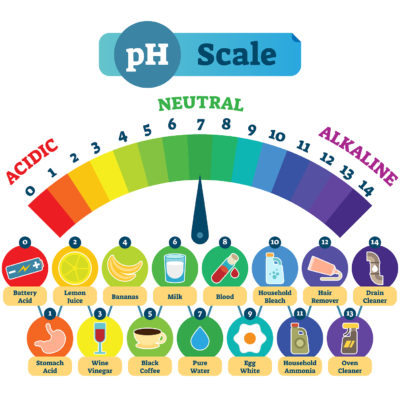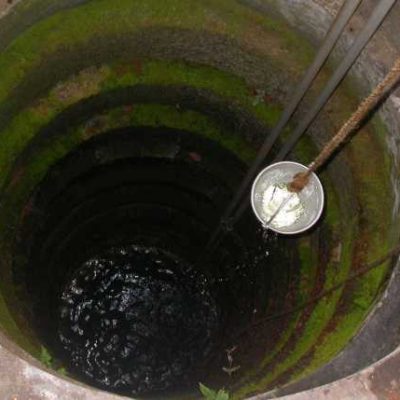
How Oxidation Leads to Oxidative Stress in Our Bodies
What happens when you put a regular nail into water? Yes, it starts to rust. The longer you leave the nail in the water, the more it rusts. Ultimately, the nail can be totally destroyed by the water.
The chemical process by which the rust happens is Oxidation. Very simply, this oxidation is the process whereby the oxygen atoms “steal” electrons from the iron atoms.
Oxidation is everywhere around us. It happens to many elements, including many of those within humans, plants and other animals.
Oxidation: Friend or Foe?
As humans, oxygen is necessary to life. But what about the process of oxidation?
Healthline states: “Oxidation is a normal and necessary process that takes place in your body.
But, the normal process can get out of balance. Imbalance can be caused by stress and environmental exposure to pollution, pesticides, industrial chemicals, smoking, radiation, etc.
Oxidative stress, occurs when there’s an imbalance between free radical activity and antioxidant activity.”
What are free radicals?
“Free radicals are unstable molecules that contribute to oxidative stress, a major cause of disease and inflammation” (Healthline).
Dr. Doni Wilson explains, “The process of oxidation happens as our bodies metabolize (or process) the oxygen that we breathe and our cells produce energy from it.”
But, this process also produces free radicals.
National Institutes of Health (NIH) explains the detrimental effects of free radicals on human health. “If in excess, free radicals and oxidants give rise to a phenomenon known as oxidative stress…[which] emerges when an imbalance exists between free radical formation and the capability of cells to clear them (Dr. Doni).”
When too many free radicals are produced, and the chemical reaction is not balanced, this creates the problem called oxidative stress.
Stressed Out
Dr. Stefan Hulea explains, “Biological oxidation and its pathological arm, the oxidative stress, should be regarded in the broader context of life’s ‘rusting’ process. This process, while natural and inevitable can be slowed down to a certain extent.”
Why is oxidative stress such a problem, and why would we want to slow it? “Because the free radicals resulting from oxidation damage cells, proteins and our DNA (genes) and because oxidation itself is such a common process, the damage it can cause is significant.
It is known to cause aging, grey hair, wrinkles, arthritis, decreased eyesight, and even cancer” (Dr. Doni). In fact, according to Medical News Today, conditions linked to oxidative stress include:
- cancer
- Alzheimer’s disease
- Parkinson’s disease
- diabetes
- cardiovascular conditions such as high blood pressure, atherosclerosis, and stroke
- inflammatory disorders
- chronic fatigue syndrome
- asthma
- male infertility
If there are ways to slow any or all these conditions, we are certain to try to avail ourselves of those ways.
Increasing Antioxidants in Our Bodies
So, what are humans to do about the deleterious effects of oxidative stress?
Well, we can slow the effects of oxidation on our body. But how?
Dr. Doni explains, “No matter what you do to avoid them, you are going to be exposed to some toxins and stress, so your next step is to increase the antioxidants you have in your system.”
So what can we do as humans to slow down our “rusting?” “We must aggressively counteract excess free radical activity which can harm the body in so many ways.
By limiting the action of free radicals in biological systems and making appropriate lifestyle changes we can actually prevent many pathological conditions from occurring” (Dr. Stefan Hulea).
We need to discover and utilize any and all methods for slowing oxidative stress, as well as avoiding harmful causes of free radical activity in the first place.
What’s in the Water?
One particular source for the contaminants that can cause oxidative stress is our drinking water.
“Safe drinking water remains inaccessible for about 1.1 billion people in the world, and the hourly toll from biological contamination of drinking water is 400 deaths of children below age 5” (Annual Review of Energy and the Environment).
These contaminants not only affect human bodies but animals, plants and therefore our entire food system.
Do you actually know all the things that are in your drinking water?
Some of the major contaminants found in some drinking water include heavy metals, pesticides, air pollutants, and other toxins. Many studies have shown strong relationships between environmental pollutants and human, animal and plant health.
What if we can not only address and eradicate the contaminants in the water, but can counteract oxidative stress, decrease pathological conditions and increase health outcomes for people throughout the world?
Our mission at ANSA North America is water quality. We can partner to both purify and improve water, reducing sources of oxidative stress in our water, counteracting free radicals and bolstering our food systems and human health.
Learn more in our next post in this ongoing series.
SOURCES
Dr. Stefan A. Hulea
Biological Oxidation and Human Health (biological-oxidation.com)
Dr. Doni Wilson
https://www.linkedin.com/pulse/5-signs-oxidative-stress-7-ways-you-can-stop-wilson-nd-cpm-cns/
Dr. Eric Berg
(781) What is Oxidation – YouTube
Fulli Zhien, et al, ScienceDirect.com
Redox toxicology of environmental chemicals causing oxidative stress
Medical News Today
What is oxidative stress? Effects on the body and how to reduce (medicalnewstoday.com)
Lemons: Benefits, nutrition, tips, and risks (medicalnewstoday.com)+
Healthline
Oxidative Stress: Definition, Effects on the Body, and Prevention (healthline.com)
Suez Water Handbook
Oxidation-reduction – Degremont® (suezwaterhandbook.com)
CDC
Drinking Water Frequently Asked Questions (FAQs) | Drinking Water | Healthy Water | CDC
United Nations
Water quality | International Decade for Action ‘Water for Life’ 2005-2015 (un.org)
Annual Reviews
DRINKING WATER IN DEVELOPING COUNTRIES | Annual Review of Environment and Resources (annualreviews.org)
Brittanica:
Food additive – Preservatives | Britannica
NIH
Oxidative Stress: Harms and Benefits for Human Health (nih.gov)





